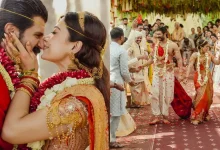
The Supreme Court on Tuesday orally observed that regular competitions and tournaments might not fall under the purview of the new Promotion and Regulation of Online Gaming Act, 2025, as they do not fit the definition of “betting and gambling.” The 2025 legislation imposes a ban on real money games, along with their associated banking services and advertisements.
The observation came from a Bench comprising Justices J.B. Pardiwala and K.V. Viswanathan during a hearing where a chess player, who plays professionally for his “livelihood,” sought to join the ongoing legal challenge against the Act. The player’s counsel stated that his client was preparing to launch a chess app and primarily participates in tournaments.
Justice Pardiwala questioned the basis of the player’s income, asking, “Are you betting or gambling? How do you raise an income?” When the counsel clarified that his client earns through tournament participation, Justice Pardiwala remarked, “Then there is no problem for you [from the Act]. They [the government] does not object to tournaments… Tournaments are completely excluded.” However, Additional Solicitor General N. Venkataraman, representing the Union Government, countered that the petitioner “does not play tournaments.”
Despite this, the Court agreed to tag the chess player’s plea with a batch of petitions filed by online gaming platforms that have also challenged the new law.
Platforms Plead for Urgent Relief
During the hearing, senior advocate C.A. Sundaram, appearing for the gaming platforms, highlighted the severe impact of the law. “We have been shut down for a month,” he submitted, adding that the companies have been forced to conduct layoffs. The platforms are seeking an interim stay on the implementation of the 2025 Act, arguing it has left them with no “avenue of functioning.”
Also read: RJD’s Last-Minute Announcement : Rs 30,000 One-Time Aid For Women, Free Power For Farmers
The Supreme Court has scheduled a detailed hearing for the consolidated case on November 26 and has directed the government to file a comprehensive counter-affidavit in response to the petitions.
Government’s Defense of the Law
The Centre has consistently argued that the law is a necessary measure to control the rapid growth of online money games, which it claims create “serious risks for individuals, families and the nation.” The government maintains that these games have exploited legal loopholes, leading to significant social harm.
According to the government’s submissions, an estimated 45 crore people have been negatively impacted by online money games, suffering a collective loss of over ₹20,000 crore. The Centre also raised national security concerns, stating that investigations revealed “some gaming platforms were being used for terror financing and illegal messaging.”
The Legal Challenge
The petitions challenging the law, which were transferred to the Supreme Court from various High Courts on September 8, argue that the Act is unconstitutional. The online platforms contend that the law violates the right to equality and freedom of expression, infringes on the principles of federalism, and ignores the settled legal distinction between games of skill and games of chance.




